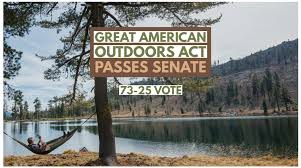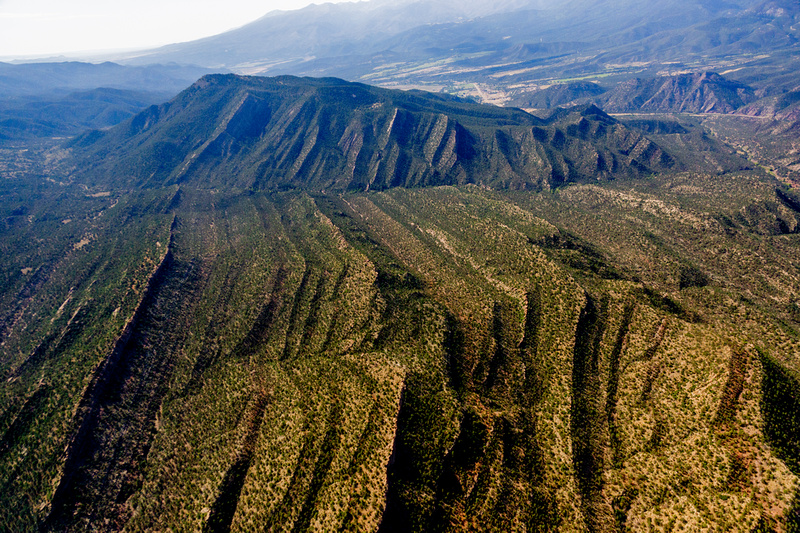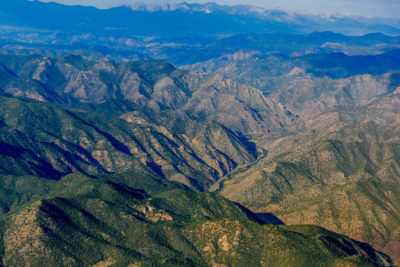Bipartisan legislation to fix up national parks and fully fund efforts to acquire and protect federal recreation holdings passed the U.S. Senate this morning and moves back to the House of Representatives.
Passage of the Great American Outdoors Act, would be historic; the legislation would permanently and fully fund the Land and Water Conservation Fund (LWCF), designating $900 million to start to begin to address the $19 billion maintenance backlog for the nation’s public lands. In addition to requiring the annual $900 million allocation, the bill sets aside $9.5 billion over five years to tackle a longstanding maintenance backlog in the national parks.
The bill had the bipartisan support of both Colorado Senator Michael Bennet (D) and Senator Cory Gardner (R). The timing could benefit Gardner, who is up for re-election to his senate seat in November and will face stiff competition from whoever wins the June 30 Democratic Senate primary.
 “Public lands are part of our legacy, our culture, and our history in Colorado. After a decade of leading this effort, I’m thrilled the Senate has finally passed full funding for LWCF,” said Bennet, who has been working on the bill since arriving in the Senate in 2010.
“Public lands are part of our legacy, our culture, and our history in Colorado. After a decade of leading this effort, I’m thrilled the Senate has finally passed full funding for LWCF,” said Bennet, who has been working on the bill since arriving in the Senate in 2010.
“This is the culmination of years of hard work by Coloradans – from county commissioners and local elected leaders to conservation groups, hunters and anglers, and outdoor recreation businesses. They have put in the work, year after year, calling for Congress to fully fund LWCF, invest in our public lands, and support our state’s economy. Their dedication and advocacy are why we were able to pass this bill today,” added Bennet.
Chaffee County, with around 80 percent of its total area designated as public lands, stands to benefit as well.
“Obviously this is big news,” said Chaffee Commissioner Keith Baker. “The most significant thing for Chaffee County is there is permanent authorization for the Land and Water Conservation Fund, which has provisions for a lot of the deferred maintenance – things like campgrounds and trailheads and pit toilets. This is big – a lot of public lands advocates have worked for it for a long time.”
Many volunteer entities participated in the long campaign to support the passage of the bill.
“Today, the Senate delivered a major win for conservation. The Great American Outdoors Act is critical to Colorado’s recovery from many of the economic, health, and social challenges we are facing,” said Carlos Fernandez, Colorado State Director, The Nature Conservancy. “Fully funding the Land and Water Conservation Fund and investing in our national parks will help rejuvenate our outdoor recreation economy, create jobs, expand recreational access for all and protect treasured landscapes for future generations.”
“This critical legislation will play a significant role in Colorado’s path to economic recovery while ensuring that we have more public lands, open space, and parks during this time of a pandemic when so many people are finding solace in the outdoors,” said Conservation Colorado Deputy Director Jessica Goad.
“More than ever, we need adequate resources to improve management of our natural resources, enhance wildlife habitat, improve public access, ensure the health of our watersheds and forests, and support local communities, “said Backcountry Hunters & Anglers Conservation Director, John Gale. “The outdoor economy drives $778 billion annually in our country – including $37 billion alone in Colorado.”
The bill reads: “For FY2021-FY2025, there shall be deposited into the fund an amount equal to 50 percent of all federal revenues from the development of oil, gas, coal, or alternative or renewable energy on federal lands and waters. Deposited amounts must not exceed $1.9 billion for any fiscal year.”
The fund must be used for priority deferred maintenance projects in specified systems that are administered by the following U.S. public land entities:
- The National Park Service
- The U.S. Forest Service
- The U.S. Fish and Wildlife Service
- The Bureau of Land Management
- The Bureau of Indian Education
Additionally, the bill makes funding for the Land and Water Conservation Fund (LWCF) permanent and stipulates that the president is to report to Congress annually regarding the allocation of funds to the LWCF.
Featured image: The view over South Badger Creek southeast of Salida. Photo EcoFlight










Recent Comments